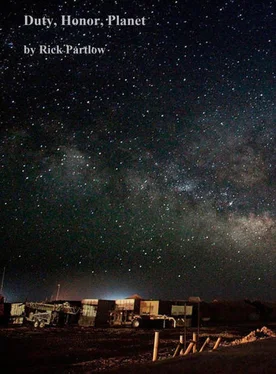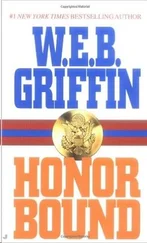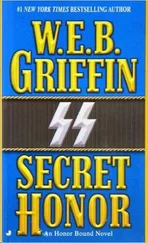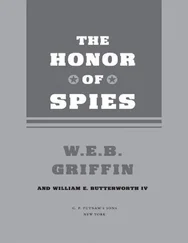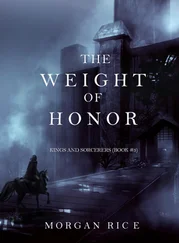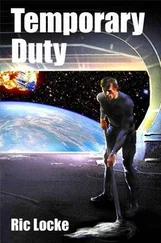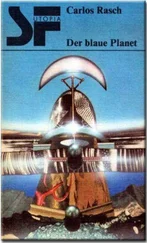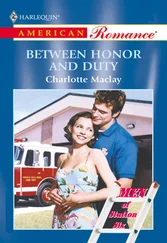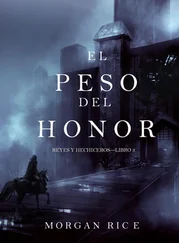“Please, sit down,” Carmella invited them, waving at the dining room table: actually, a buildfoam booth that extended out from the wall, just beneath the window.
Jason waited for the Mendozas, Val and Glen to take a seat before he situated himself across from Guzman—he wanted to keep an eye on the man. Tanaka and the RHN cameraman both remained standing, the reporter setting up at a good angle for filming and the bodyguard taking a vantage point against the wall to the side of the table.
“So, Jorge, Carmella,” Val asked them, “have you managed to dig a well yet?”
Jorge shook his head. “Not as yet. The ground is too hard and the water too deep. We need to rent digging equipment, but we cannot afford enough seed to grow enough crops to make the money to rent it.”
“The multicorps have plenty of equipment for their mines and farms,” Gomez spoke up with a note of anger in his voice—yet McKay somehow got the impression that the words were rehearsed. “But we exiles are kept down, digging in the dirt with our hands while they lounge in their plantation houses, with their slaves catering to them, like medieval barons. How ironic that the Republic government, with its roots in the United States, has turned its back on the revolutionary ideals which founded that nation.” He glared at McKay. “Do you know that with the funds spent on shipping emigrants to the star colonies, a city the size of one of your Western megalopolises could have been built to house more than twice the number of indigents who have been sent to the colonies? But that would mean admitting that the problem is poverty and not ideology—and it wouldn’t give the multicorporations a ready and helpless work force.”
“You seem like a very well educated man, Mr. Gomez,” McKay observed. “How the hell did you end up here?” That earned him a nasty look from Valerie, but he was becoming inured to those by now.
“Nineteenth in my graduating class at UCLA, Mr. McKay” he replied, with something in the way of self-satisfaction in his voice smoothly replacing the righteous indignation as if it had never been. “Or is it Captain McKay?”
“Lieutenant,” Jason informed him, trying not to show the trepidation that was beginning to gnaw at his guts.
“I had everything,” Gomez went on, “that modern society could provide: a professorship at the University of the Americas, a real house away from the conditioned boxes of the cities, a family. But I was willing to risk it all to become politically active in my homeland of Panama, to try to bring justice to those less fortunate than I.”
“This particular brand of ‘political’ activity,” Jason surmised, surreptitiously slipping his right hand inside his open overshirt and letting it drift toward the butt of his shoulder-holstered pistol, “wouldn’t happen to be the Panamanian Liberation Front, would it, Mr. Gomez?”
“For the sake of argument, Lieutenant,” Gomez said with a wave of his hand, his smile much too confident for Jason’s comfort, “what would you say if I told you you were right? And what would you say if I told you”—his dark eyes glinted with a madness McKay had seen for one brief moment in the face of a terrorist on Inferno before the man had gone down to a hail of bullets—“that there was five kilos of plastic explosives taped to my chest, and that this”—he produced, with the flourish of a stage magician, a small plastic box about the size of a comlink—“was the trigger?”
McKay’s hand froze centimeters from his handgun, his eyes focussing so tightly on that plastic device in Gomez’s hand that they could have been hooked to the RHN reporter’s camera zoom control. With his free hand, Gomez pulled up the hem of his shirt, revealing a large, grey lump of putty taped across the lower part of his torso. Beside him, Jason could hear Valerie’s sharp intake of breath and feel the vibrations as Glen began to shake uncontrollably. The RHN reporter lowered his camera and began slowly backing toward the door.
“It is an interesting feeling controlling one’s own destiny, Lieutenant McKay,” Gomez told him calmly.
Around them, as if on cue, three men emerged from hiding places in the bedrooms and kitchen, their hands filled with compact submachineguns. McKay didn’t turn his head but he knew the answer to his own questions before they were even fully formed. The gunmen had been able to conceal themselves from Vinnie and Jock’s sensors because they had somehow been able to acquire, probably through judicious bribes to cargo ship crews, heartbeat-masking stealthsuits and all-polymer weapons that no doubt fired caseless cartridges with non-metallic bullets. In other words, this had to have been planned very well in advance.
The gunmen began to advance on them, one approaching the cameraman while the other two headed for the table. Jason didn’t try to think, not on a conscious level. He’d been too well trained in Colonel Mellanby’s crash course for that. He knew everything he needed to know on a gut level. He had to act now, before the opposition got organized, or there would be no satisfactory end to this. And he had to watch for the opportunity that always presented itself, if only you knew where to look.
When things began to happen, they happened fast. The spark that lit the match was the eruption of a barrage of gunfire outside. Gomez and his people had to be expecting it, but even as Val and the others twisted around in surprise, so did the gunmen allow their attention to be drawn away for just a split-second.
And that was more than Nathan Tanaka needed. One second the Japanese bodyguard was leaning harmlessly against the wall, a still-life of utter motionlessness, as the nearest of the gunmen approached him; the next eyeblink, Tanaka was a blur that defied definition, and the unfortunate Salvadoran who’d been luckless enough to be less than a meter from him was lying on the ground with his neck at an impossible angle.
Gomez jerked around at the crack of the gunman’s neck breaking, but all of Jason McKay’s attention—all of his being—was focussed on the man in front of him. Faster than he thought he could ever possibly move, and yet so slowly it made his brain scream at him, Jason ripped his service auto from its horizontally-canted shoulder holster and blew off the top half of Carlos Gomez’s forehead.
Later, he wouldn’t recall seeing the pistol’s pop-up electronic sight extend, or noticing the targeting dot through its clear LCD image. He wouldn’t even remember actually pulling the trigger. To him, it seemed as if the gun had jumped into his hand of its own free will. But the ear-shattering explosion of the high-power 10mm being fired in the closed building jolted him back into synch with the passage of time.
Not rising from his seat, unable to hear Valerie O’Keefe’s scream as the blood and bits of brain splashed over her and Glen, Jason twisted around and fired a double-tap into the chest of the second gunman. The fellow was tall, with long hair that whipped wildly around as he jerked from the impact of the ceramic slugs, then fell like a puppet with his strings cut. McKay glanced around frantically for the remaining one of the three Central Americans, but saw that Tanaka had already taken care of Gomez’s other compatriot, who was writhing on the floor trying hard to breathe, but having a hard go of it with his trachea ripped out.
The roar of his own handgun still ringing in his ears, Jason couldn’t be sure if the gunfire outside had stopped or not, but he wasn’t about to leave his command to fight that battle alone… or leave Shannon alone. The fierceness of the latter conviction surprised him. He turned back to the ruin that had once been Carlos Guzman and pried the bomb trigger loose from the corpse’s hand, stuffing it into his pocket before he rose from his seat. Pushing past the RHN reporter, leaving him to stare in abject horror at the corpses around him, Jason scooped up one of the terrorist’s submachineguns—they’d never had the chance to fire them—and paused at the doorway to fix a look at Tanaka.
Читать дальше
